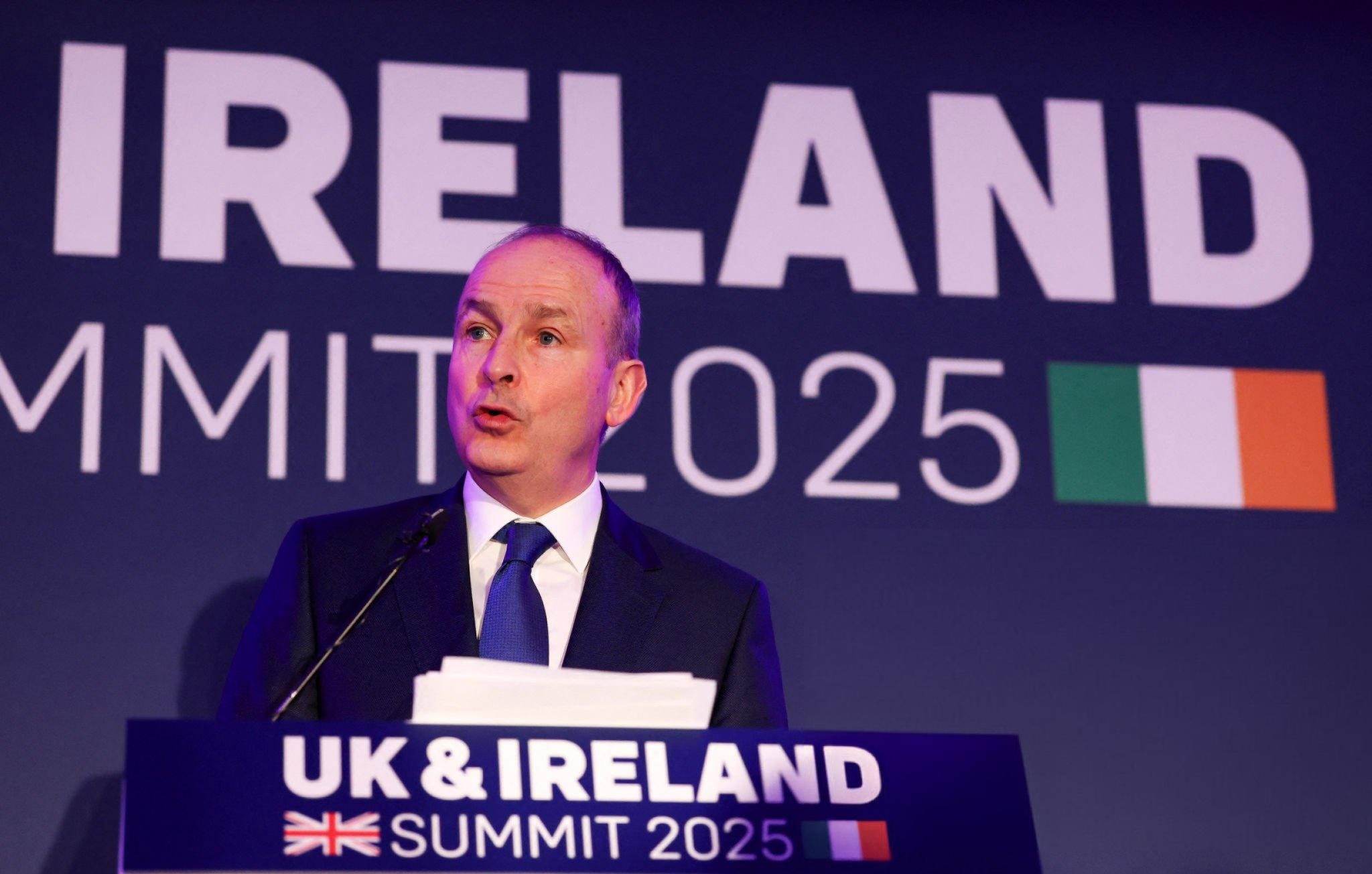Micheál Martin has reaffirmed Ireland’s commitment to neutrality, stating that while the country is open to participating in a peacekeeping mission in Ukraine, it will not be involved in any military deployment designed as a deterrent force.
Speaking in Liverpool during a UK-Ireland political summit, the Taoiseach emphasised that Ireland’s role in international conflicts has always been one of peacekeeping rather than aggression. He also expressed his intention to engage in a “respectful” meeting with US President Donald Trump at the White House next week, where discussions on Ukraine and European security are expected.
Martin praised UK Prime Minister Sir Keir Starmer for his “effective and impactful” approach to the unfolding crisis, highlighting the importance of strong diplomatic engagement with European allies.
Neutrality and peacekeeping
Ireland’s strict policy of military neutrality has historically shaped its approach to international conflict. Under the current legal framework, known as the “triple lock” system, the country can only deploy troops abroad for peacekeeping missions formally sanctioned by the United Nations. This restriction means that Ireland is often unable to engage in military operations that do not have UN approval, particularly if a member of the UN Security Council, such as Russia, exercises its veto power.
The Irish government is now considering legislative changes to modify the triple lock system, allowing for greater flexibility in international deployments. However, Martin was firm in his stance that Ireland’s role would remain focused on peacekeeping rather than deterrence.
“We all want peace,” the Taoiseach told reporters in Liverpool. “There are too many wars in the world, too many young people losing their lives on battlefields. It impacts livelihoods everywhere, particularly for Ukrainians, as well as people in the Middle East, Sudan, and other regions.”
He reiterated that Ireland would only consider involvement in Ukraine if a ceasefire were established and if its role were to support peace efforts.
“We’ve made it clear that if a ceasefire develops, Ireland has always been open to peacekeeping. But we wouldn’t be part of a deterrent force. These are two distinct and separate matters.”
Strengthening UK-Ireland security cooperation
As part of the Liverpool summit, Martin discussed opportunities for greater security cooperation between the UK and Ireland, particularly in areas such as cybersecurity and the protection of undersea cables, which are critical for communications and energy infrastructure.
“We will be discussing how we can enhance that type of security cooperation and engagement,” he said, noting that the evolving geopolitical landscape requires closer collaboration between European nations.
Meeting with Trump at the White House
The Taoiseach also addressed his upcoming visit to the White House, where he is set to meet President Trump as part of the annual St Patrick’s Day celebrations. He emphasised that while he respects differing political perspectives, his priority remains the protection of Ireland’s economic and diplomatic interests.
“I’m honoured to be going to the White House, celebrating what is a major historic tradition and relationship between Ireland and the United States, particularly for Irish Americans and our diaspora,” he said.
Acknowledging the importance of trade and investment ties between the two nations, Martin highlighted the significant contributions of Irish businesses to the US economy.
“Companies like Ryanair, Glanbia, Kerry Group, and Icon create thousands of jobs in America. It’s a robust economic relationship that benefits both sides,” he said.
When asked whether he would challenge any claims made by Trump regarding Ukraine or European security, Martin remained diplomatic.
“People come to the table with different perspectives. I respect the offices that people hold. It’s important to engage in discussions respectfully while ensuring Ireland’s interests are safeguarded.”
A clear message on Ukraine
Despite diplomatic engagement, Martin made it clear that Ireland would not be swayed into military commitments that contradict its longstanding position of neutrality.
“Ireland stands for peace. If there is an opportunity to play a role in ensuring a lasting and sustainable peace in Ukraine, we will consider it. But deterrence is not our path,” he concluded.







